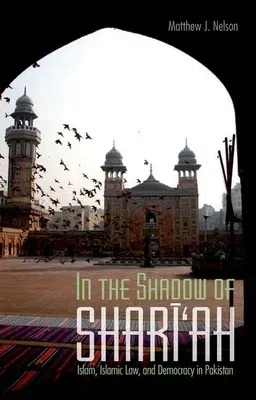Matthew J Nelson
(Author)In the Shadow of Shari'ah: Islam, Islamic Law and Democracy in PakistanHardcover, 22 June 2009

Temporarily out of stock
Free Delivery
Cash on Delivery
15 Days
Free Returns
Secure Checkout

Print Length
288 pages
Language
English
Publisher
Hurst & Co.
Date Published
22 Jun 2009
ISBN-10
1850659265
ISBN-13
9781850659266
Description
Product Details
Author:
Book Format:
Hardcover
Country of Origin:
GB
Date Published:
22 June 2009
Dimensions:
22.91 x
14.73 x
2.59 cm
Genre:
Islamic
ISBN-10:
1850659265
ISBN-13:
9781850659266
Language:
English
Pages:
288
Publisher:
Weight:
589.67 gm